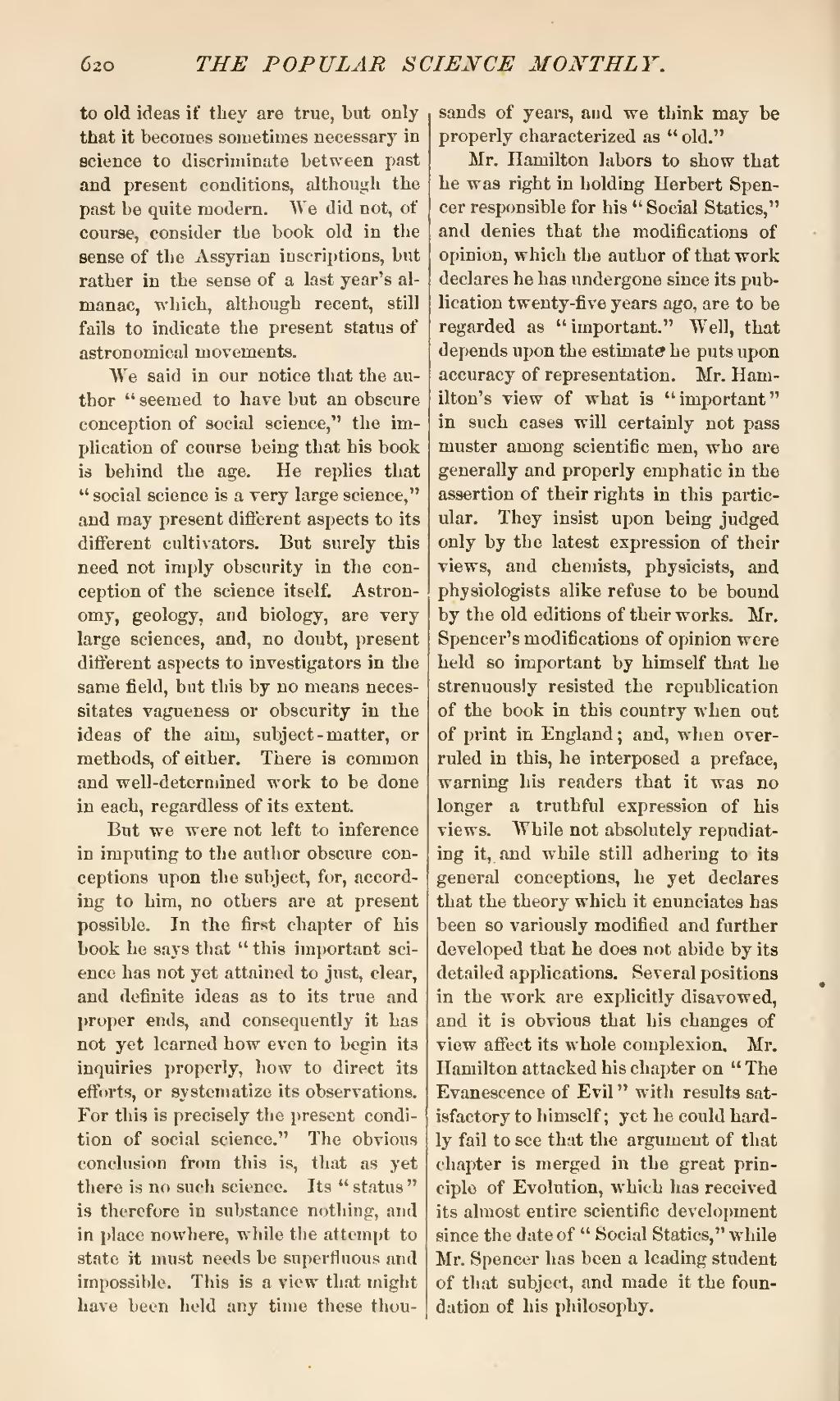to old ideas if they are true, but only that it becomes sometimes necessary in science to discriminate between past and present conditions, although the past be quite modern. We did not, of course, consider the book old in the sense of the Assyrian inscriptions, but rather in the sense of a last year's almanac, which, although recent, still fails to indicate the present status of astronomical movements.
We said in our notice that the author "seemed to have but an obscure conception of social science," the implication of course being that his book is behind the age. He replies that "social science is a very large science," and may present different aspects to its different cultivators. But surely this need not imply obscurity in the conception of the science itself. Astronomy, geology, and biology, are very large sciences, and, no doubt, present different aspects to investigators in the same field, but this by no means necessitates vagueness or obscurity in the ideas of the aim, subject-matter, or methods, of either. There is common and well-determined work to be done in each, regardless of its extent.
But we were not left to inference in imputing to the author obscure conceptions upon the subject, for, according to him, no others are at present possible. In the first chapter of his book he says that "this important science has not yet attained to just, clear, and definite ideas as to its true and proper ends, and consequently it has not yet learned how even to begin its inquiries properly, how to direct its efforts, or systematize its observations. For this is precisely the present condition of social science." The obvious conclusion from this is, that as yet there is no such science. Its "status" is therefore in substance nothing, and in place nowhere, while the attempt to state it must needs be superfluous and impossible. This is a view that might have been held any time these thousands of years, and we think may be properly characterized as "old."
Mr. Hamilton labors to show that he was right in holding Herbert Spencer responsible for his "Social Statics," and denies that the modifications of opinion, which the author of that work declares he has undergone since its publication twenty-five years ago, are to be regarded as "important." Well, that depends upon the estimate he puts upon accuracy of representation. Mr. Hamilton's view of what is "important" in such cases will certainly not pass muster among scientific men, who are generally and properly emphatic in the assertion of their rights in this particular. They insist upon being judged only by the latest expression of their views, and chemists, physicists, and physiologists alike refuse to be bound by the old editions of their works. Mr. Spencer's modifications of opinion were held so important by himself that he strenuously resisted the republication of the book in this country when out of print in England; and, when overruled in this, he interposed a preface, warning his readers that it was no longer a truthful expression of his views. While not absolutely repudiating it, and while still adhering to its general conceptions, he yet declares that the theory which it enunciates has been so variously modified and further developed that he does not abide by its detailed applications. Several positions in the work are explicitly disavowed, and it is obvious that his changes of view affect its whole complexion. Mr. Hamilton attacked his chapter on "The Evanescence of Evil" with results satisfactory to himself; yet he could hardly fail to see that the argument of that chapter is merged in the great principle of Evolution, which has received its almost entire scientific development since the date of "Social Statics," while Mr. Spencer has been a leading student of that subject, and made it the foundation of his philosophy.

